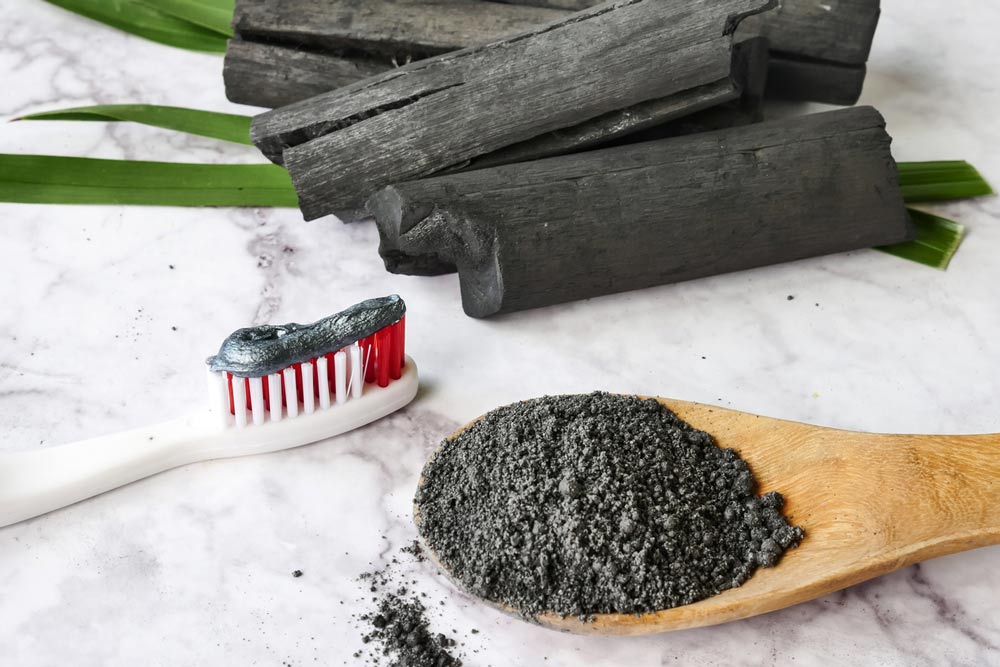The Benefits of Charcoal Toothpaste
Charcoal toothpaste has gained significant popularity in recent years due to its numerous benefits for oral health. In this article, we will explore the advantages of using charcoal toothpaste and why it has become a preferred choice for many individuals.
Natural Teeth Whitening
One of the primary benefits of charcoal toothpaste is its ability to naturally whiten teeth. The activated charcoal present in the toothpaste helps remove surface stains and discoloration, resulting in a brighter smile. Unlike harsh chemical whitening agents, charcoal toothpaste offers a gentle and effective solution for achieving a whiter smile.
Detoxification and Odor Control
Charcoal toothpaste possesses excellent detoxifying properties that can help eliminate toxins and impurities from the mouth. It effectively absorbs bacteria and neutralizes bad breath, leaving your mouth feeling fresh and clean. By using charcoal toothpaste regularly, you can combat oral odor and maintain long-lasting freshness.
Antibacterial Action
Charcoal toothpaste exhibits potent antibacterial properties, which can help reduce the risk of gum disease and tooth decay. It works by eliminating harmful bacteria that may be present in the mouth, promoting healthier gums and p, and preventing the formation of cavities. Incorporating charcoal toothpaste into your oral care routine can contribute to overall oral health.
Gentle on Enamel
Unlike some traditional toothpaste formulas, charcoal toothpaste is gentle on tooth enamel. Enamel is the outer protective layer of teeth, and its erosion can lead to tooth sensitivity and other dental problems. Charcoal toothpaste is typically free from harsh abrasives, making it a suitable option for those with sensitive teeth.
Freshens Breath
Charcoal toothpaste not only eliminates bad breath but also leaves your mouth feeling fresh and revitalized. Its ability to absorb odor-causing compounds helps maintain a pleasant breath throughout the day. By incorporating charcoal toothpaste into your oral hygiene routine, you can confidently interact with others without worrying about unpleasant breath.
Stain Removal
Charcoal toothpaste is known for its stain remstain-removales. It can effectively remove stubborn stains caused by coffee, tea, wine, or other pigmented foods and beverages. Regular use of charcoal toothpaste can help prevent the buildup of new stains, allowing you to maintain a radiant smile.
Suitable for All
Charcoal toothpaste is generally safe for use by individuals of all ages. However, it is essential to select a reputable brand and follow the instructions provided. If you have any concerns or specific dental conditions, it is advisable to consult with your dentist before incorporating charcoal toothpaste into your oral care routine.

In conclusion, charcoal toothpaste offers a range of benefits that contribute to improved oral health and a brighter smile. Its natural teeth whitening, detoxification, antibacterial action, enamel-friendly formula, breath freshening, stain removal, and suitability for all make it a popular choice among individuals seeking a comprehensive oral care solution. Consider incorporating charcoal toothpaste into your daily oral hygiene routine to experience these remarkable benefits.
Frequently Asked Questions about the Benefits of Charcoal Toothpaste
1. Is charcoal toothpaste safe to use?
Yes, charcoal toothpaste is generally safe to use. However, it is important to follow the instructions provided by the manufacturer and consult with your dentist if you have any concerns.
2. Does charcoal toothpaste whiten teeth?
Charcoal toothpaste is known for its teethteeth-whiteningerties. The activated charcoal in the toothpaste helps remove surface stains and discoloration, resulting in a brighter smile.
3. Can charcoal toothpaste help with bad breath?
Yes, charcoal toothpaste can help with bad breath. It has natural antibacterial properties that can help eliminate odor-causing bacteria in the mouth, providing a fresher breath.
4. Does charcoal toothpaste remove plaque?
Charcoal toothpaste can help remove plaque to some extent. The abrasive nature of activated charcoal can aid in the removal of plaque, but it is still important to brush regularly and visit your dentist for professional cleanings.
5. Is charcoal toothpaste suitable for sensitive teeth?
Charcoal toothpaste may not be suitable for individuals with sensitive teeth. The abrasive nature of charcoal can potentially cause tooth sensitivity or enamel wear. It is recommended to consult with your dentist if you have sensitive teeth.
6. How often should I use charcoal toothpaste?
It is generally recommended to use charcoal toothpaste 2-3 times a week. Using it more frequently may lead to enamel wear and tooth sensitivity. It is important to follow the instructions provided by the manufacturer.
7. Can charcoal toothpaste prevent cavities?
Charcoal toothpaste alone may not be sufficient to prevent cavities. It is important to maintain a good oral hygiene routine, including regular brushing, flossing, and dental check-ups, to effectively prevent cavities.
8. Are there any side effects of using charcoal toothpaste?
Some individuals may experience temporary blackening of the gums or tongue when using charcoal toothpaste. This is usually harmless and can be easily resolved by rinsing thoroughly with water.
9. Can charcoal toothpaste be used by children?
Charcoal toothpaste is not recommended for children, especially those under the age of six. Children may not have the necessary motor skills to brush properly with charcoal toothpaste, and there is a risk of ingestion.
10. Can charcoal toothpaste replace regular toothpaste?
No, charcoal toothpaste should not replace regular toothpaste. Charcoal toothpaste can be used as a supplement or alternative occasionally, but it is important to use fluoride toothpaste for daily oral hygiene.




